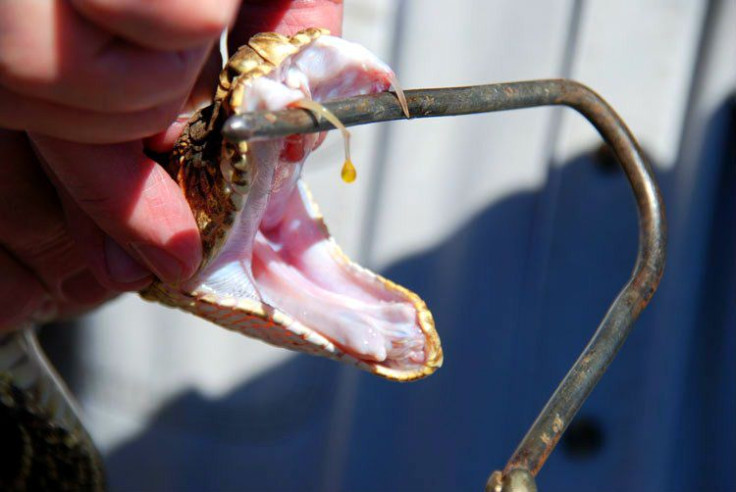Lethal Snake Venom May Hold Cancer, Diabetes Cure

Venomous snakes may someday save your life, according to scientists who believe that deadly reptiles may provide a good source for new drugs to cure human diseases.
While venom has already been used to create drugs, researchers say that the chemicals in it are usually too dangerous for human use.
However, because the latest findings, published in the journal Nature Communications, show that snakes and lizards are able to convert their lethal venom back into harmless molecules and use them safely in other parts of their own bodies, scientists believe that venom, which was once thought to be too dangerous for human consumption may one day be harnessed to make safe and effective drugs for a variety of human conditions.
Scientists believe that these "reclaimed" toxins that have evolved into completely harmless molecules could be used to help develop drugs for conditions like cancer, diabetes or high blood pressure.
Researchers explain that reptile venom usually targets the same physiological pathways as many human disease and they believe that understanding how the venom molecule evolves could help scientists develop new, effective drugs.
Investigators compared two genomes of venomous snakes and lizards to see how their venoms evolved, and found that the venom may have developed in an "unexpectedly dynamic" process, with the toxic chemicals in venom being formed through evolution and then later being adopted by parts of the body for other uses.
"Our results demonstrate that the evolution of venoms is a really complex process. The venom gland of snakes appears to be a melting pot for evolving new functions for molecules, some of which are retained in venom for killing prey, while others go on to serve new functions in other tissues in the body," lead author Dr. Nicholas Casewell, from Liverpool School of Tropical Medicine, said in a statement.
Snake researchers have long known that chemicals in venom evolve from harmless molecules and do jobs in other parts of the body, but up until now they had assumed that the evolution was a one-way process.
Researchers said that venom has evolved independently many different times in a variety of animals and its role is largely seen as a means by which its owner can feed or protect itself against other predators.
However, researchers noted that prey tends to evolve resistance to venom, which means that venoms from snakes and reptiles have to constantly evolve to remain effective.
"Snake venom toxins are the most rapidly-evolving proteins ever identified," Casewell said, according to Plant Earth Online.
Researchers from the latest study found that, rather than staying stuck in the venom gland, some of the chemicals evolve back into harmless molecules to do different things in the body.
"Everyone had assumed that these recruitments from ordinary proteins to venomous proteins were rare. But now we know the process might not be that rare, and it goes backwards," explained Casewell.
Co-author Dr. Wolfgang Wüster from Bangor University said that the toxic chemicals in the venom target the same physiological pathways that doctors aim to target to treat a variety of medical conditions.
"Understanding how toxins can be tamed into harmless physiological proteins may aid development of cures from venom," he said.
Researchers said that main target of snake venom when attacking prey is the cardiovascular system, which consists of heart and blood vessels, and according to BBC News examining that pathway has played a major role in the origins of some blood pressure drugs like ACE inhibitors.
The nervous system is another target of snake system, and the major challenge has been to overcome the toxic effect of the toxins. Researchers said that some snake venoms cause the cells that line blood vessels to separate and die, including those that keep cancerous tumors alive.
Understanding how deadly reptile venom works it " just another tool in the arsenal to provide opportunities to target human diseases that we really want to fix," co-researcher Gavin Huttley said, according to AFP.



























